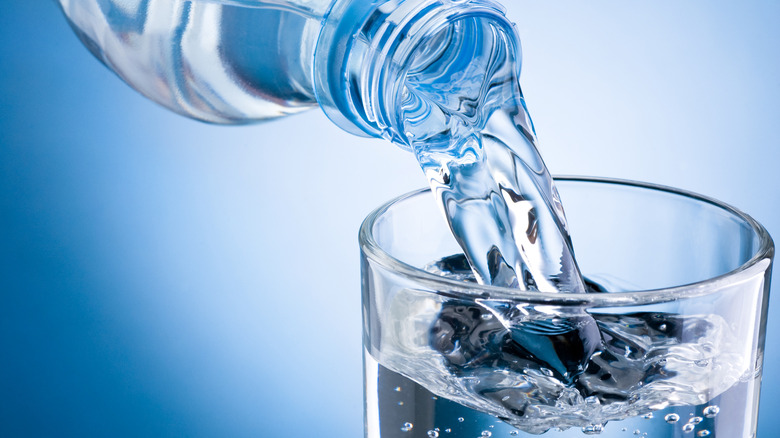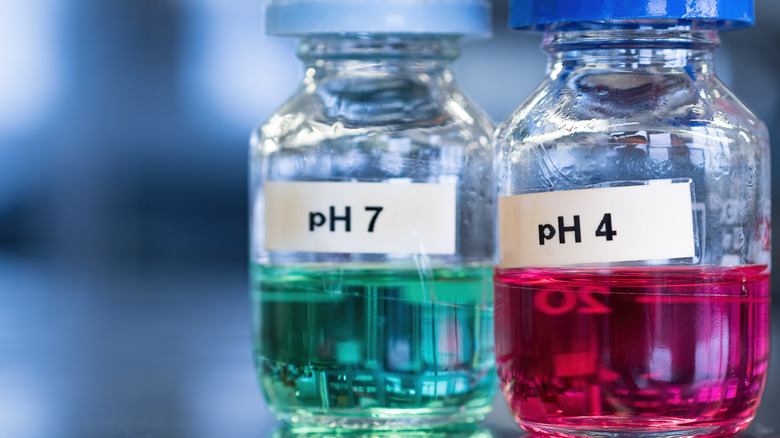What The pH Level On Bottled Water Really Means
We all have to accept the reality that without water life on earth would be fairly tough, especially given that we'd all be extinct – and that's a pretty big obstacle to overcome (even for stubborn people like Gordon Ramsay). It also must not be forgotten that sophisticated people would have nothing to squirt into their whiskey.
Proper hydration is an essential part of maintaining a healthy lifestyle, meaning that consistent intake of water is recommended as part of daily life. The Association of UK Dietitians explains that water is essential for bodily functions to take place, assisting blood supply, the kidneys, and the digestive system.
It is therefore understandable why bottled water is so popular, providing a relatively cheap and convenient method of transporting water during the everyday chaos that life presents, allowing us to stay hydrated. However, even water bottles are complicated by the complexities of the 21st Century, with many referencing the pH level of the water. So, what is pH and how does it affect bottled water?
Water with a very low pH has a high acidity
As explained by the U.S. Geological Survey, The pH value of water is determined using a scale of zero to 14, with zero being acidic, seven neutral, and 14 basic (or alkaline). Intermountain Healthcare notes that the optimum pH value for the human body is 7.4 as this is the level that blood should be. The majority of bottled waters will be between 5 and 8.
Intermountain Healthcare also stresses there is no scientific proof linking water with a higher alkaline value to greater health benefits. However, BBC Good Food clarifies recommendations for the amount of water that should be consumed each day. It suggests drinking up to 2 liters of water, which can come from various sources (including coffee, low-fat milk, and sugar-free drinks).
Despite the obvious ease of bottled water (it's definitely a lot simpler to carry water in a container than in cupped, leaky hands), is it actually any more beneficial than tap water? Insider argues both options for consuming water are vastly alike, proving to be similar in taste and purity – although it does note that bottled water is less environmentally friendly because its manufacturing processes often rely on oil.

